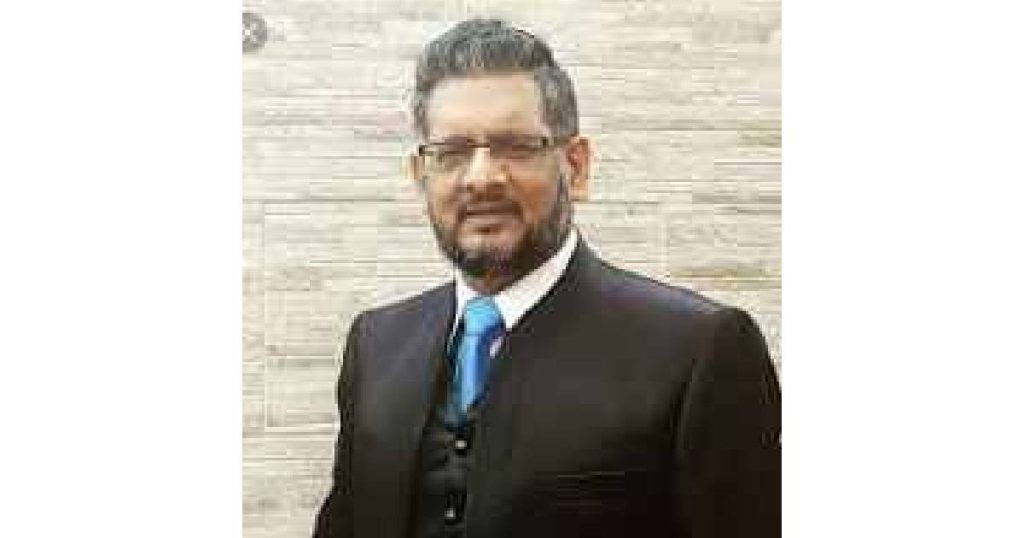The philosophical paradox of the Ship of Theseus asks whether an object that has had all its parts replaced remains fundamentally the same. This quandary captures the transformation of the United National Congress (UNC) under Kamla Persad-Bissessar’s leadership. Once a vibrant, cohesive, and disciplined political force under Basdeo Panday, the UNC has been systematically stripped of its ideological foundation, strategic vision, and political gravitas. What remains today is but a hollow shell, unmoored from its founding ethos and unrecognizable to those who remember its former strength and purpose.
Under Basdeo Panday, the UNC was not merely a political party; it was a movement that transcended ethnic and geographic barriers while maintaining its cultural identity. Panday’s leadership was marked by a blend of strategic acumen and visionary thinking. He understood that to win elections and govern effectively, the party had to reach beyond its traditional Indo-Trinidadian base while still championing the interests of its core supporters.
Panday’s UNC made inroads into the East-West Corridor, a bastion of the People’s National Movement (PNM). He held large, well-organized public meetings in marginal constituencies, addressing the concerns of Afro-Trinidadians without alienating the party’s Indo-Trinidadian supporters. Panday’s outreach extended even to Tobago, traditionally a PNM stronghold, where he engaged the electorate with respect and a genuine commitment to inclusion. These efforts showcased his understanding of the importance of uniting diverse constituencies under a shared vision of national development.
Critically, Panday’s leadership also emphasized the art of alliance-building. The 1995 coalition with the National Alliance for Reconstruction (NAR) was a masterstroke that brought together disparate political entities to secure a shared goal. This historic partnership not only delivered the UNC’s first term in government but also demonstrated Panday’s ability to forge meaningful alliances across the political and ethnic divide. His coalition politics were not based on opportunism but on the strategic pragmatism necessary for enduring political success.
Panday’s UNC was a forum for intellectual debate and dissent. While he maintained firm control over the party’s direction, he encouraged open discussions that enriched its strategic outlook. Figures like Ganga Singh, Vasant Bharath, Jack Warner, Ramesh L. Maharaj, etc. were integral to the party’s intellectual and operational framework, contributing to a political entity that combined grassroots activism with sophisticated policy-making.
In stark contrast, Kamla Persad-Bissessar’s leadership has dismantled the foundational pillars of the UNC. Like the Ship of Theseus, where each plank replaced raises questions about the object’s essence, every decision under her tenure has further eroded the party’s identity. Kamla’s intellectuals are Ravi Ratiram, Vandana Mohit, and other low-grade politicians.
Persad-Bissessar’s UNC has all but abandoned the East-West Corridor and Tobago, effectively conceding these critical battlegrounds to the PNM. Her leadership has shifted the party’s focus inward, prioritizing safe seats and insular rhetoric over national outreach. Gone are the large public meetings in marginal constituencies, replaced by a reliance on a shrinking loyal base. Kamla instead retreats to host Monday Night Forums in Debe, Penal afraid of political meetings in marginal seats. This inward turn has alienated undecided voters and reinforced the perception that the UNC is an ethnically and geographically exclusive party.
The art of alliance-building, a cornerstone of Panday’s strategy, has been entirely neglected under Persad-Bissessar. Her tenure has been marked by divisive rhetoric and erratic decision-making that have alienated potential allies. The party’s inability to collaborate meaningfully UNC members as well as with other political entities underscores its isolation in Trinidad and Tobago’s political landscape.
Under Persad-Bissessar, the UNC has become a party where loyalty is valued over competence. Dissent is no longer seen as a means to strengthen the party but as a threat to the leader’s authority. Internal critics have been vilified and purged, driving away some of the party’s brightest minds. This has left the UNC bereft of strategic thinkers and innovative leaders, reducing it to an entity staffed by sycophants.
Persad-Bissessar’s UNC lacks the ideological coherence that defined the party under Panday. Her leadership has devolved into populism devoid of substance, with no clear vision for national development. This ideological vacuum has rendered the UNC incapable of mounting a credible challenge to the PNM.
The transformation of the UNC under Kamla Persad-Bissessar forces us to confront the philosophical paradox of the Ship of Theseus. If every plank of a ship is replaced, does it remain the same vessel? For the UNC, the answer is painfully clear: it does not. The party has replaced its core values, leadership ethos, and strategic vision, leaving behind a political vessel that bears the name but not the essence of the United National Congress.
While the PNM under Dr. Keith Rowley has made efforts to transcend racial politics—symbolized by the elevation of figures like Stuart Young, of Chinese-Indian ancestry, to leadership positions—the UNC has regressed into a party clinging to outdated tactics and divisive rhetoric. The contrast is stark and damning.
The UNC today is a tragic shadow of its former self. Under Kamla Persad-Bissessar’s leadership, it has lost its ideological foundation, its strategic foresight, and its ability to unite diverse constituencies. The Ship of Theseus paradox is not merely an intellectual exercise; it is a painful reality for the UNC. The party that once inspired hope and commanded respect under Basdeo Panday is gone. In its place is a hollow vessel, adrift in the political sea, captained by a leader who has steered it far from its original course.
The UNC’s transformation is not just a political tragedy but a cautionary tale of what happens when a party loses its soul. For those who remember the UNC’s former glory, its current state is not just different; it is unrecognizable. The party’s ship has sailed, but it is no longer the proud vessel that once charted a course toward national unity and progress. It is a derelict, drifting aimlessly, with no clear destination in sight.
Dr. Devant Maharaj, PhD, MBA
